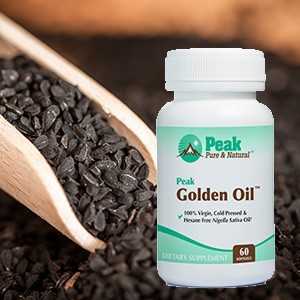Get Easy Health Digest™ in your inbox and don’t miss a thing when you subscribe today. Plus, get the free bonus report, Mother Nature’s Tips, Tricks and Remedies for Cholesterol, Blood Pressure & Blood Sugar as my way of saying welcome to the community!
Why this antiviral could help COVID-19 patients recover quicker

Researchers around the world are racing to come up with treatments for COVID-19 before more people lose their lives to this devastating virus. The problem is, new treatments take a long time to develop and test. So, why not turn to some of the drugs we’ve already developed to treat other viruses?
Viral diseases have been a part of the human experience pretty much as long as there has been a human experience. So, it’s no wonder that we’ve developed upward of 50 antiviral drugs used to treat a wide range of viruses and other diseases.
One of the many useful antivirals we’ve developed over the years is interferon(IFN)- α2b. This one was created in the 1980s, and since then it’s been used to treat chronic hepatitis C, chronic hepatitis B, hairy cell leukemia, Behçet’s disease, chronic myelogenous leukemia, multiple myeloma, follicular lymphoma, carcinoid tumor, mastocytosis and malignant melanoma.
That’s quite a list. And pretty soon we may be able to add COVID-19 to it. A new study found that interferon(IFN)- α2b reduced inflammation and helped clear the SARS-COV-2 virus out of COVID-19 patients’ upper respiratory tracts quicker.
Interferon(IFN)- α2b could be a critical treatment during the pandemic
During the 2002-2003 SARS outbreak, an international team of researchers decided to test the effect interferon(IFN)- α2b had on the particularly nasty strain of coronavirus. It was effective, which is why the same researchers decided to give it a try against COVID-19 in a new study.
The study included 77 people with COVID-19 in Wuhan, China. All the participants were moderately sick with the virus — they were admitted to the hospital, but they didn’t need intensive care, prolonged oxygen supplementation or intubation.
Researchers found that treating these patients with interferon(IFN)- α2b helped them mount a quicker response to the dangerous and unpredictable virus. More specifically, the drug significantly reduced the amount of time the virus was detectable in the upper respiratory tract. People who took the drug cleared the virus out of their upper respiratory tract about seven days quicker on average.
The drug also lowered blood levels of two inflammatory proteins that are typically elevated in COVID-19 patients — interleukin(IL)-6 and C-reactive protein (CRP).
How did the drug help people fight COVID?

Peak Golden Oil™
The powerful immune-modulating properties of Peak Golden Oil™ support a healthy immune system and your body’s ability to self-heal.
Well, interferon(IFN)- α2b is designed to mimic a natural process the body uses to fight viruses. When your body is infected with a virus, it produces signaling proteins called interferons. These interferons are supposed to stop viruses from multiplying and activate other immune cells to fight the virus. But some viruses block the production of interferon. Supplementing with extra interferon in the form of interferon(IFN)- α2b can override this block.
“Rather than developing a virus-specific antiviral for each new virus outbreak, I would argue that we should consider interferons as the ‘first responders’ in terms of treatment,” says lead researcher of the study Dr. Eleanor Fish.
Hope on the horizon
This is the first time interferon(IFN)- α2b’s been shown to have beneficial effects against COVID-19. The next step is to test this effect in a clinical trial. But the good news is that since it’s already been used to treat a wide range of diseases, we know its side effects… and there’s the potential for it to be put to good use sooner than treatments that are being developed from scratch.
Of course, at this point, it’s all just speculation. So, hunker down for a while longer. Keep wearing masks, social distancing and taking other measures to keep yourself safe.
Sources:












